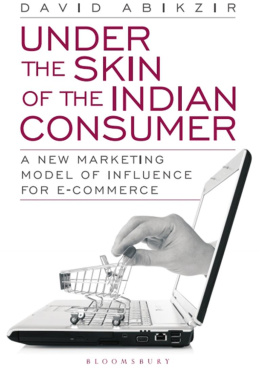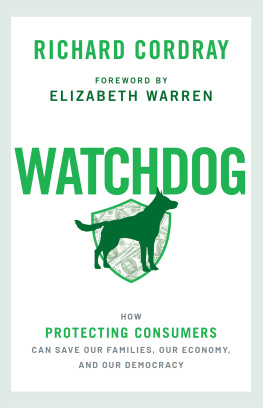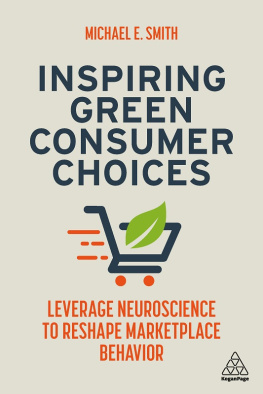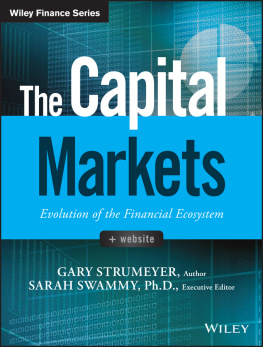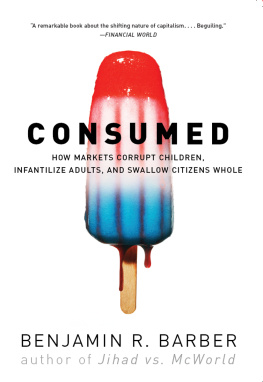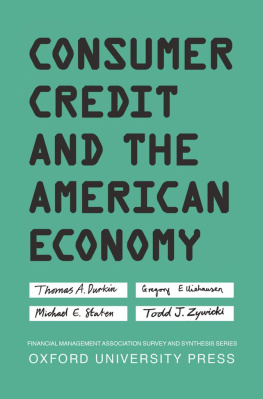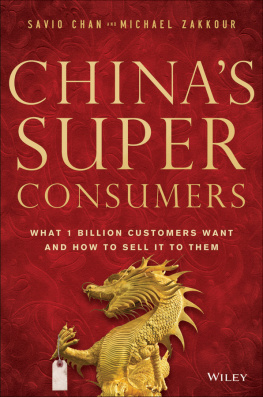First published 2008 by Paradigm Publishers
Published 2016 by Routledge
2 Park Square, Milton Park, Abingdon, Oxon OX14 4RN
711 Third Avenue, New York, NY 10017, USA
Routledge is an imprint of the Taylor & Francis Group, an informa business
Copyright 2008 Nico Stehr
All rights reserved. No part of this book may be reprinted or reproduced or utilised in any form or by any electronic, mechanical, or other means, now known or hereafter invented, including photocopying and recording, or in any information storage or retrieval system, without permission in writing from the publishers.
Notice:
Product or corporate names may be trademarks or registered trademarks, and are used only for identification and explanation without intent to infringe.
Library of Congress Cataloging-in-Publication Data
Stehr, Nico.
Moral markets : how knowledge and affluence change consumers and products / Nico Stehr.
p. cm.
Includes bibliographical references and index.
ISBN 978-1-59451-456-2 (cloth : alk. paper) ISBN 978-1-59451-457-9 (pbk.: alk. paper
1. Consumption (Economics) 2. ConsumersAttitudes. 3. CapitalismMoral and ethical aspects. 4. CapitalismSocial aspects. 5. Social ethics. 6. ScienceSocial aspects. 7. Environmental responsibility. 8. Business ethics. 9. Knowledge, Sociology of. I. Title.
HB801.S783 2007
306.3dc22
2007020037
ISBN 13: 978-1-59451-456-2 (hbk)
ISBN 13: 978-1-59451-457-9 (pbk)
Each people has its morality which is determined by the conditions in which it lives.
Emile Durkheim ([1883] 1964:239)
A century ago, the typical family household in one of todays Organization for Economic Co-operation and Development (OECD) countries spent four-fifths of its income on existential necessities, food, clothing, and shelter. Spending on these commodities now accounts for less than one-third of consumption. In the developed world in the past fifty years, average real incomes have risen four- or fivefold.
But even the spending that goes toward the satisfaction of absolute needs has changed significantly. Our clothing, shelter, and food hardly resembles that of a century or fifty years ago. Not only the volume, but also what, where, and how we buy food, clothing, shelter, and other commodities and services have changed radically.
Yet most of the important ideas about markets were conceived in a world that did not know general affluence or broad-based education only poverty, hunger, and illiteracy. Wage-earner poverty was seen as an essential condition for the expansion of production, and, by the same token, the wealth of a nation was seen to be a function of the penury of its working-class. Poverty also had strong moral attributes. Poverty induced discipline in the laboring population and nourished the status quo. From the 18th century on, it was common to conclude that prosperity came with serious demoralizing effects.
The paradox is therefore that the theory of the market still widely in use today emerged in a society that no longer exists, in terms of either its system of communication, its forms of social differentiation, the role of the state, its system of social and political inequality, or its economic system. Consumers were hardly in evidence, if at all, in early theories of the market. Consumption did not create wealth. In fact, most families did not consume. Most families subsisted.
The interest of political economists was focused on the production, distribution, and exchange of goods. It was a world in which production processes and the workplace were privileged. The production process served to meet basic needs, such as food, shelter, or clothing. Production protected society from nature, and the marketplace executed purely instrumental functions. The consumer was a powerless laborer, nature a resource, and both were part of the forces of production.
In many present-day accounts of the consumer, the picture is equally bleak: the mass of the people suffer from either material deprivation or the debilitating effects of overconsumption. Nonetheless, knowledge-guiding interests in the social sciences are now shifting toward the demand side. Today both work and shopping are accepted subjects of study. And morally coded economic conduct is not only a matter of corporate ethics.
In modern societies markets are everywhere. But markets differ hugely due to different fiscal or legal conditions. New markets supported by the Internet emerge all the time. But there are only a few societies in history in which widespread affluence and such generally high levels of education can be observed. It seems reasonable to ask whether under conditions of relative prosperity and knowledgeability markets also change significantly, and whether to do the normatively right thing becomes a salient part of the conduct of all market participants and the procedures governing market conduct.
One does not have to be swayed by the idea that consumption has become the vanguard of contemporary history in order to agree that not much else affects the modern economy (and society) more than the decisions made in the marketplace by consumers, as governed by their consumptive and cultural capital.
Consumption may not be the sole purpose of production, as Adam Smith held, but it is certainly one of the prime attributes of the economy, and even more so in societies that are prosperous. As a result, one is able to speak of a change in the nature of the power relations in the marketplace: a change in which varied consumer groups have a more powerful status. Today consumers shape campaigns, products, and services, as well as the procedures that govern market conduct.
On the other hand, of course, there are the obligations or the special logic of the market, which affect the behavior of all market participants. Moreover, economic fields (markets) stand, as is rarely overlooked, in a certain dynamic linkage to their surrounding societal fields or nonmarket institutions; for example, the state and transnational institutions that augment market conditions in that they license, limit, or approve legal codes and production methods, and the conditions goods and services have to fulfill in order to make it to the market in the first instance.
But is it the case that, in contrast to the primary knowledge-guiding interest of the social sciences for much of the last century, we are witnessing a departure from the rationalization process of the life-world driven by a purely self-centered, mechanical acquisition of money and decisions strictly independent of their effects on others? It is possible that substantive rationality (Max Weber) and therefore consumer decisions and producers judgments that are not strictly driven by a monetary calculus and the rational pursuit of self-interest are on the ascendancy in the economic system? Along with the changing power relations in the marketplace, is there a rise in the significance of consumer politics, as well as an increased capacity of consumers to resist? This would mean that norms, world views, and varied interests would play a key role in the modern economy, with repercussions for the conduct of other social institutions in society.


